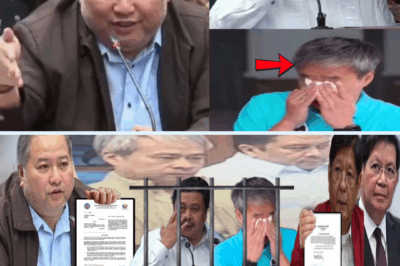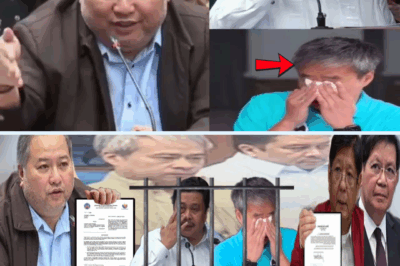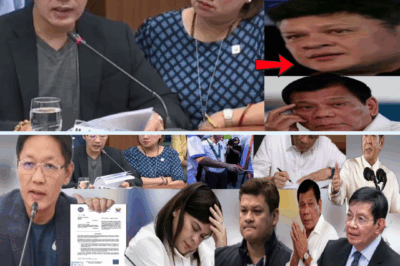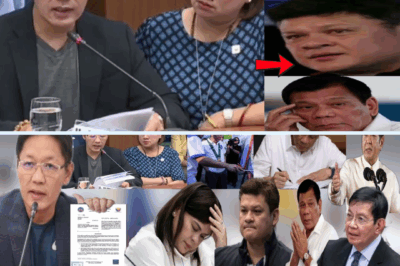Was Sara Duterte a Failure as DepEd Chief? A Controversy Unfolds
Vice President Sara Duterte’s two-year tenure as Secretary of Education (DepEd) from 2022 to 2024 ended in controversy, with critics denouncing the state of the education system and accusing her of mismanagement. Yet Duterte points to a contrasting reaction: President Bongbong Marcos Jr. personally urging her to stay. What really lies beneath the headlines?
Marcos’s Plea: A Sign of Trust, or Political Courtesy?
In a recent interview from The Hague, Sara Duterte recounted how, when she tendered her resignation in June 2024, President Marcos begged her to reconsider—offering another position, and even asking for her assistance in the upcoming midterm elections . She interpreted this as clear evidence that she was not seen as a failure: “These are not the actions of someone who sees me as a failure,” she stated .
She also made a sharp personal remark, noting that Marcos “smelled like alcohol at 10:30 in the morning,” which she said solidified her decision to resign—and cryptically suggested that perhaps he was the real “failure” .
Yet these claims were swiftly rebutted by Palace Press Officer Claire Castro, who dismissed them as “propaganda” aimed at discrediting the president and advancing Duterte’s own political ambitions .
The Education System: Falling Behind in a Rapidly Shifting World
Duterte’s tenure was marked by blunt criticism of the Philippine education system, which she described as “stuck with paper and pencil,” lagging behind peers utilizing robotics and coding in classrooms.
Independent assessments echo her concerns. The Second Congressional Commission on Education’s Year Two Report, Fixing the Foundations: A Matter of National Survival (January 2025), chronicled deep-seated systemic issues: chronic shortages of principals, students falling years behind curriculum benchmarks, a high rate of teachers handling subjects outside their specialization, and alarmingly low budget allocation for education
Performance, Procurement, and Legacy: Mixed Results
Before her resignation, Sara Duterte oversaw several reforms under DepEd. According to her official profile, these included the MATATAG K–10 curriculum (aimed at decongesting learning areas and fostering national identity), infrastructure improvements, and digital access initiatives—such as delivering satellite internet, digital learning carts, and Starlink connections to schools.
Her administration also tackled a major procurement controversy: the Commission on Audit flagged P2.4 billion worth of potentially overpriced and outdated laptops purchased in 2021. In response, Duterte requested a “fraud audit” and cooperated with Senate investigations
Still, many of these efforts fell short. Classroom construction reached 2,201 units—substantial, yet below the 5,000–6,000-classroom target. Digital infrastructure improvements, while notable, struggled with underutilization of allocated funds and delays in delivery of devices . Additionally, despite these intentions, the Philippines still ranked lowest among 64 countries in creative thinking in the PISA assessment, reinforcing the depth of the educational crisis.
Allegations of Misuse and Mismanagement
Critics were unsparing. Post-Duterte, new Education Secretary Sonny Angara revealed that under her leadership, some P1.5 million worth of gadgets, laptops, and school materials—procured in 2020—remained undistributed and effectively wasted .
There were also broader concerns over the stewardship of confidential funds. Investigations found that the DepEd and Office of the Vice President, under Duterte, allocated some ₱612.5 million in confidential expenditures, allegedly backed by questionable documents and signatures .
Observers criticized her lack of expertise. Claire Castro remarked that Duterte herself admitted to having no background in education and instead relied on others—asserting her primary skill was “hammering people to work” . Editorial commentary labeled her stint a “deped debacle,” suggesting the administration should seek qualified leaders in future appointments.
Fallout and Political Undercurrents
Beyond educational policy, Duterte’s departure from DepEd deepened her fracturing relationship with President Marcos. Her resignation in June 2024 was seen as a sign that the once-solid “UniTeam” alliance between the Marcos and Duterte dynasties had collapsed .
A July 2025 survey found her trust and performance ratings declining, while Marcos’s climbed—signaling that public confidence appeared to favor the president amid ongoing controversy .
Her impeachment in February 2025 followed, based on allegations ranging from threats against Marcos, misuse of funds, to failing to oppose Chinese incursions in the South China Sea . And in May 2025, Marcos called for the resignation of all cabinet secretaries—a “bold reset” move—further highlighting institutional shifts away from Duterte’s sphere of influence.
Final Take: Mixed Legacy, Deep Divides
Sara Duterte’s tenure as DepEd Secretary leaves us with a legacy that resists easy definition. On one hand, she championed reform, recognizing the system’s flaws and pushing for modernization. On the other, implementation lagged, budget execution faltered, and controversies clouded her tenure.
Her narrative—that a president pleading for her to stay proves her value—is compelling, yet sympathy from the president can stem from political necessity as much as performance. The evidence of undelivered resources, fiscal inefficiency, and systemic constraints paint a more sobering picture.
Ultimately, her tenure mirrored a broader struggle at the intersection of governance and politics. The education system remains mired in foundational challenges, and solving such deep-seated issues requires not just intention, but expert leadership—and unwavering commitment.
As the Philippines grapples with a continuing learning crisis, her depEd tenure may serve as a cautionary tale: good intentions are not enough—and aligning vision with execution is the true test of public leadership.
News
Alcantara’s shocking testimony shakes Villanueva and Estrada—dark secrets surface, power trembles, and the nation demands the hidden truth.
Breaking News: Villanueva and Estrada Under Fire as Henry Alcantara Testifies In a stunning twist that has sent shockwaves across…
Villanueva and Estrada shaken—Alcantara’s explosive testimony reveals hidden secrets, sparking fear, betrayal, and a nation demanding shocking answers.
Breaking News: Villanueva and Estrada Under Fire as Henry Alcantara Testifies In a stunning twist that has sent shockwaves across…
Villanueva, Estrada cornered—Alcantara’s shocking testimony drops bombshell secrets, power crumbles, and the nation braces for explosive truth.
Breaking News: Villanueva and Estrada Under Fire as Henry Alcantara Testifies In a stunning twist that has sent shockwaves across…
Discaya’s bombshell rocks the Dutertes—secrets explode, power crumbles, and the nation holds its breath for the truth.
Breaking News: Duterte Family Faces Political Firestorm as Discaya Testifies In a political drama that has gripped the Philippines like…
Duterte empire on the brink—Discaya breaks silence, explosive secrets revealed, power shaken, and the nation waits breathlessly.
Breaking News: Duterte Family Faces Political Firestorm as Discaya Testifies In a political drama that has gripped the Philippines like…
Discaya’s shocking testimony ignites firestorm—Duterte dynasty shaken, secrets exposed, and a nation demands answers to chilling allegations.
Breaking News: Duterte Family Faces Political Firestorm as Discaya Testifies In a political drama that has gripped the Philippines like…
End of content
No more pages to load










